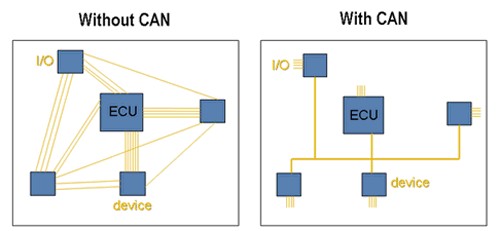On this Wikipedia the can you freeze white rice links are at the top of the page across from the article title. This article’s lead section may be too short to adequately summarize the key points. Development of the CAN bus started in 1983 at Robert Bosch GmbH.
Bosch published several versions of the CAN specification and the latest is CAN 2. A is for the standard format with an 11-bit identifier, and part B is for the extended format with a 29-bit identifier. A CAN device that uses 11-bit identifiers is commonly called CAN 2. 0A and a CAN device that uses 29-bit identifiers is commonly called CAN 2.
ISO 11898-1 which covers the data link layer, and ISO 11898-2 which covers the CAN physical layer for high-speed CAN. In 2012, Bosch released CAN FD 1. 0 or CAN with Flexible Data-Rate. This specification uses a different frame format that allows a different data length as well as optionally switching to a faster bit rate after the arbitration is decided.
CAN FD is compatible with existing CAN 2. 0 networks so new CAN FD devices can coexist on the same network with existing CAN devices. The OBD-II standard has been mandatory for all cars and light trucks sold in the United States since 1996. The EOBD standard has been mandatory for all petrol vehicles sold in the European Union since 2001 and all diesel vehicles since 2004.
Traditionally, the biggest processor is the engine control unit. CAN bus to determine whether the engine can be shut down when stationary for improved fuel economy and emissions. CAN bus to determine if the vehicle is stopped on an incline. Parking assist systems: when the driver engages reverse gear, the transmission control unit can send a signal via the CAN bus to activate both the parking sensor system and the door control module for the passenger side door mirror to tilt downward to show the position of the curb. The CAN bus also takes inputs from the rain sensor to trigger the rear windscreen wiper when reversing.
